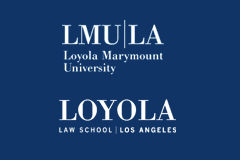The Igniting Streams of Learning in Science (ISLS) academy engages 11th and 12th grade students and their teachers in a year long learning community (LC) experience. ISLS transforms attitudes about science in school curricula, local communities, college classrooms, and government agencies. While the goals of ISLS are ambitious: (1) to increase student interest in teaching high school science; (2) to increase the number of students pursing Science, Technology, Engineering, and Math (STEM) majors in college, and (3) to connect students to their local environments using methods of scientific investigation, the challenges for STEM education have never been greater. The ISLS Academy uses a four-part model that can be replicated. The model is centered on a twelve day summer institute: (1) pre-institute formation of seven member learning communities, (2) immersion of LC members in the summer institute where they are introduced to bio-monitoring protocols while being mentored by college professors, graduate students, and professional scientists from government agencies and private industry, (3) post-institute adaptation of protocols in the development of learning objects (LOs) (elements of a curriculum) to address local environmental issues, and (4) follow-up activities with LC members using their LOs in teaching peers and others. This paper is a mid-project report on a three-year program. It concerns fourteen school districts from urban, suburban and rural areas where students and teachers demonstrate the applicability of real science curricula across districts. By using "real science", i.e. the bio-monitoring protocols of the Ohio Environmental Protection Agency, students recognize that they themselves can use science to assess and improve the health of their local environments. The success and applicability of the ISLS program to other regions is dependent upon fostering ownership in the use of scientific protocols and methods of learning that invite all students to become citizen scientists. Results thus far indicate a high level of success in increasing student interest and understanding of science and in developing LOs that (1) are aligned with state science standards, (2) utilize current technologies already embraced by students, and (3) incorporate ecosystem approaches for addressing issues of local landscapes.
Recommended Citation
Taylor, Dennis J.; Holly, Mary Louise; and Zachariah, Sajit
(2009)
"Landscaping Locally: Fostering Stewardship with Real Science in High School Curricula,"
Cities and the Environment (CATE):
Vol. 1:
Iss.
2, Article 11.
Available at:
https://digitalcommons.lmu.edu/cate/vol1/iss2/11

